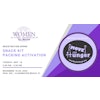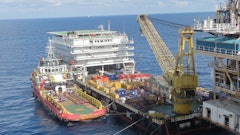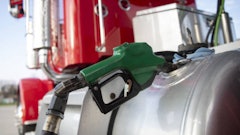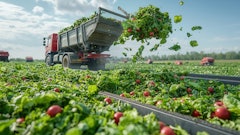VITAL STATS
Positioned in the corridor between Philadelphia and New York City, with easy access to both major metropolitan areas.
Population: 640,000
Land Area: 347 square miles
Geographic Reach: One--third of the U.S. population lives within one day’s drive and half of Canadian businesses are within 500 miles
College Town: Home to 11 colleges and universities enrolling more than 45,000 students.
The Lehigh Valley of Pennsylvania is already home to more than 60 food companies and there’s still room to grow this industry, says Raymond Suhocki, president and CEO of Lehigh Valley Economic Development Corp.
The region is a major transportation hub, with east--west access provided by U.S. Route 22, I--78, I--80 and the Pennsylvania Turnpike. Two Class 1 railroads––Norfolk Southern and Canadian Pacific––interchange in nearby BethIntermodal Terminal, a regional hub for rail freight logistics at Bethlehem Commerce Center located just a half mile from I--78. About 50 million consumers are reachable within a day’s drive of the region.
The Lehigh Valley, home to about 640,000 people, encompasses a large region, including the major cities of Allentown, Bethlehem and Easton, and it supports some 43 industrial parks housing a wide range of industries. The handful of food companies now operating here includes Nestle, Keebler, Kraft, Perrier and Just Born Confections.
One major resource of particular interest to the food industry is the region’s water quality. "This is one of the reasons Perrier is located here––not only in terms of the availability of the water, but the quality as well," says Suhocki. In fact, Coca--Cola, also located in the area, mentions this as one of the primary reasons it chose to locate here.
Numerous business resources, incentives and opportunities are available through Enterprise Zones, Keystone Opportunity Zones and Keystone Innovation Zones. The International Trade Development Program helps companies develop and implement export strategies. Team Pennsylvania Lehigh Export Network is the first point of contact for companies needing local, state or federal export assistance.
"Attractive grants, low--interest loans and other incentives are available from the state, counties and local municipalities for job creation in this industry," Suhocki says. Businesses located in Enterprise Zones can expect assistance in accessing low--interest, long--term and subordinate fixed--rate financing. In addition, companies can receive help in workforce development initiatives, property tax abatements and start--up business programs.
Suhocki adds: "Tax credits are granted for investments used to rehabilitate, expand or improve buildings, land or infrastructure through Enterprise Zones."
Tax credits amount to 20 percent of eligible project costs, or up to 30 percent if the project creates employment opportunities for low--income individuals. "Companies can claim as much as $250,000 in tax credits in any one year and have five years to claim all their credits," says Suhocki.
The region offers a lower cost of living, compared with other areas in the Northeast, says Suhocki. The proximity to New York, Philadelphia and Washington, coupled with excellent regional cultural offerings make the Lehigh Valley an attractive place to live. "It’s really an outstanding location and it’s a place where employees want to be," Suhocki says.
---------------------------------------------------
Coca-Cola Bottling Co.
Pure Water Attracted Coke To The Valley
Coca-Cola has a major presence in the Lehigh Valley–-with Coca-Cola Bottling Co. in Bethlehem and Coca-Cola Syrup Manufacturing Co. located in Allentown. One reason the bottling company chose to locate here is because of the high-quality water, which allows the company to use UV light disinfection as part of its multi--barrier water processing.
"We are one of only four Coke franchises in the country that uses an alternative water treatment system and we can forego the chemical addition other bottling companies have to use," says Chuck Evans, director of logistics for Coca-Cola Bottling Co. of the Lehigh Valley.
"Our water is very pure, which is important for producing a product like Coke, which has to maintain absolute consistency from region to region," Evans says, noting Coke is produced regionally.
Coca--Cola Syrup Manufacturing Co. chose its Allentown location because of the easy accessibility to major Northeast markets to the north and south–-including New York, Boston, Philadelphia and Washington.
"When we considered this area, we chose it because of its attractive cost of living index, its conduciveness to logistics operations and because of the availability of reasonably priced land," says Steve Morrow, general manager. "All of these factors made this the best choice."
Morrow notes that the Lehigh Valley location helped optimize the company’s operations. "We were able to consolidate two facilities–-one in Baltimore and one in Nashua, NH–-into this one 225,000 square--foot facility because of the market accessibility," he says.
Like Evans, Morrow notes the importance of the area’s excellent water that is required in producing Coca--Cola syrup.
"We were looking for an area with good water so we wouldn’t have to treat it extensively because all the water we use has to be of the same high quality in order to produce Coca-Cola syrup that is consistent," says Morrow.
Another plus for Coca-Cola and other food companies in the region is a new publicly owned water treatment facility. "In addition to good--quality potable water, food companies also need good sewage capabilities and this is readily available," says Morrow.
On the inbound side of its operations, Coca--Cola Syrup Manufacturing receives its corn syrup by super jumbo tanker cars using Norfolk Southern. "They bring the tankers right into our plant in an enclosed indoor facility. Railroad spurs run right into our plant off the main line," Morrow says.
The company receives between six and 12 railcars daily and the facility has the capacity to receive up to 18 cars daily. "Norfolk Southern does a very good job for us and we are pleased with their service."
On the outbound, the syrup facility ships an average of 70 truckloads of product a day and on a busy day the numbers can go up to 120 truckloads. The company also ships to bottlers for producing cans and bottles of Coca--Cola.
The syrup facility operates within a 72--hour window from the time it receives an order to the time the order is delivered. "Nothing sits here for more than three days, so everything is fresh and the syrup is high quality," Morrow says. "So we take the order, design and order the concentrate, mix it, package it and then we put it on a truck and deliver it."
The syrup facility is the newest for Coca-Cola in the country and is state--of--the--art, having all the latest technology built in when the facility opened in 1997. Morrow says the company is already considering an expansion.
Using state grants for workforce training and tax credits has helped the company prosper, says Morrow.
"We shopped around before we built here and Lehigh Valley gave us a better deal all around in terms of business and workforce incentives," he says. "Our overall costs are determined largely by our shipping costs––so it’s very important for us to be close to the major markets which are in the Northeast where the larger population centers are."














